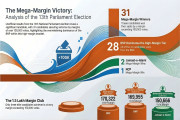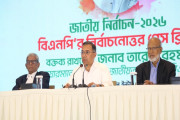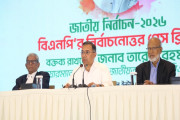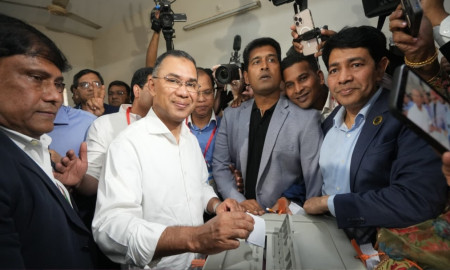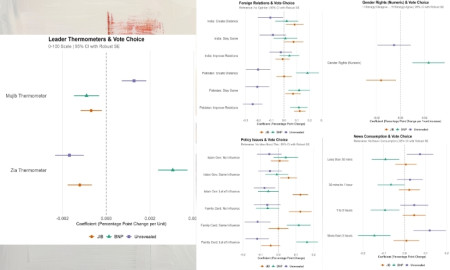Cracking IELTS in 2025

For Bangladeshi students aiming to study or work abroad in 2025, achieving a strong IELTS score (typically 6–8) is a crucial step. With limited resources and busy schedules, self-study using accessible materials combined with mock tests at coaching centers offers a practical path to success. This guide outlines strategies for Bangladeshi students to excel in all four IELTS modules—Listening, Reading, Writing, and Speaking—emphasizing independent learning and practice through mock tests.
Understanding the Goal
IELTS Academic, required for university admissions, and General Training, for migration or work, both test Listening, Reading, Writing, and Speaking. Bangladeshi students, often balancing studies or jobs in cities like Dhaka or Chittagong, need a focused plan. Starting 3–6 months in advance with self-study materials and regular mock tests at centers like British Council or IDP Bangladesh ensures steady progress toward a target band score.
Core Preparation Strategies
- Self-Study Materials: Use official resources like Cambridge IELTS Books 11–19, available at bookstores in Nilkhet or online. Free apps like British Council’s IELTS Prep and websites like IELTS Liz provide practice tests and tips.
- Mock Tests: Schedule mock tests at coaching centers like the British Council, Mentors, or IDP to simulate exam conditions. These tests help track progress and build confidence.
- Daily Practice: Dedicate 2–3 hours daily to self-study, using a quiet corner at home or a library. Balance time across all modules to avoid weaknesses.
- Progress Tracking: Maintain a notebook to log mock test scores and note errors, such as missed listening keywords or weak essay structures.
Module-Specific Strategies for Bangladeshi Students
1. Listening: Adapting to Global Accents
The Listening module’s four recordings, with British, Australian, or American accents, test comprehension, often tricky for Bangladeshi students.
- Self-Study: Stream Netflix shows like “The Crown” or “Stranger Things” on a smartphone, pausing to note details without subtitles. Follow TED Talks on YouTube, focusing on speakers with varied accents. Use Cambridge IELTS audio files, replaying tricky sections to catch keywords like prices or addresses.
- Mock Tests: Book Listening practice tests to master timing for question types like sentence completion or diagram labeling. Analyze errors to improve accent recognition.
- Tip: Pair up with a study buddy post-mock test to discuss missed answers, making learning interactive. Use the available resources on the internet to get ready.
2. Reading: Enhancing Speed and Word Power
The Reading module’s Academic passages or General Training texts require fast comprehension, challenging for students with limited vocabulary.
- Self-Study: Skim online articles from Prothom Alo’s English section or The Business Standard, aiming for 5-minute reads. Log new terms like “globalization” or “sustainability” in Anki, a flashcard app, for daily review. Tackle Cambridge IELTS Reading tests, practicing quick scans for specific details like statistics or names.
- Mock Tests: Take Reading mock tests to handle time pressure (20 minutes per passage) and question types like matching information or Yes/No/Not Given.
- Technique: Jot down main ideas in Bangla after skimming to boost understanding, then answer questions in English. Explore relevant topics via free online IELTS practice tests.
- Tip: Use a phone timer during self-study to replicate mock test conditions, building speed. The Cambridge IELTS books should become your best friend by now.
3. Writing: Structuring Clear Answers
The Writing module’s Task 1 (data or letter) and Task 2 (essay) demand precision, often tough for students with grammar gaps.
- Self-Study: For Academic Task 1, analyze charts in Cambridge books, adopting their structure (intro, overview, details) for graphs on topics like Bangladesh’s exports. For General Training, draft letters like job applications using IELTS Up templates on YouTube, tweaking for personal context. Write Task 2 essays on themes like health or education, outlining ideas first to ensure clarity. Study sample answers online to use connectors like “therefore” or “on the other hand.”
- Mock Tests: Submit essays for feedback, taking timed mock tests to meet the 20-minute (Task 1) and 40-minute (Task 2) limits.
- Tip: Revise one weak essay after each mock test, targeting specific issues like vocabulary range. IELTS Up on YouTube is more than sufficient for the writing section if you have limited time to prepare for IELTS.
4. Speaking: Gaining Confidence in Conversation
The Speaking module’s interview format tests fluency, intimidating for students with limited English practice.
- Self-Study: Answer Part 1 questions (e.g., “What’s your favorite place?”) aloud, recording on a phone to refine pronunciation. For Part 2, practice cue cards like “Describe a celebration,” timing 1-minute prep and 2-minute talks. Discuss Part 3 topics like “impact of war” with friends, using phrases like “I believe.”
- Mock Tests: Schedule Speaking mock tests to practice with examiners, improving delivery and reducing nerves through detailed feedback.
- Tip: Log examiner feedback after mock tests to guide self-study, focusing on areas like intonation.
Average Bangladeshi students preparing for IELTS in 2025 can achieve their target band score through disciplined self-study and strategic mock tests. Typically, students face challenges in one or two specific modules, such as Writing or Speaking, requiring extra effort to improve. However, they must also maintain focus on all modules—Listening, Reading, Writing, and Speaking—to secure a higher overall score and compensate for weaker areas. By using affordable materials like Cambridge books and free online resources, practicing daily, and leveraging coaching centers for mock tests, students can build proficiency across all sections. Start early, stay consistent, and let mock tests and home practice guide the path to IELTS success.

